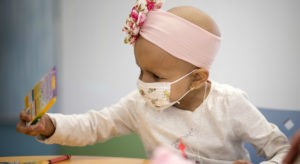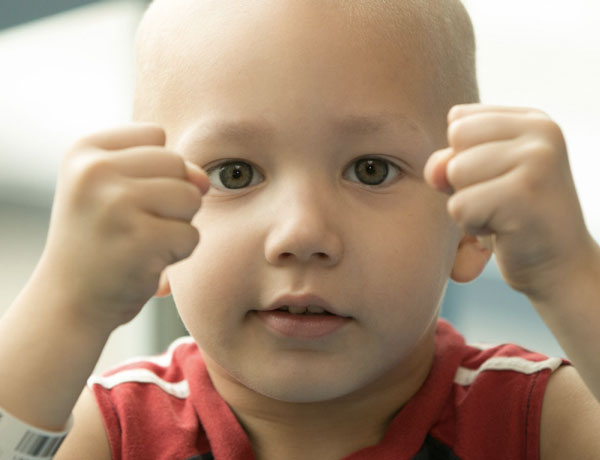There were no chronic toxicities, and the quality of life for pediatric brain cancer patients was very good. The best results were obtained in the DIPG and AA groups.
I think that cancer in children is difficult. Pediatric brain cancer is beyond difficult. The most difficult aspect of pediatric brain cancer is that conventional oncology has little to offer patients and their caregivers.
Aggressive chemotherapy and radiation causes serious short, long-term and late stage side effects.

As the article below states, the standard-of-care for a specific type of brain cancer, DIPG, is radiation therapy (RT). Besides the probable side effects of Radiation Therapy, the average patient can expect a lifetime of long-term side effects and while reducing tumor growth only for a short time.
So what is a caregiver for a pediatric brain cancer patient to do? Please read the information linked below and consider antineoplaston therapy (ANP) and the Burzynski Research Institute (BRI).
I am a long-term cancer survivor of a blood cancer called multiple myeloma. After several years of aggressive conventional therapies from ’95-’97, I faced “nothing more can be done for you.” I underwent ANP from 11/97-4/99. I went from terminal to cancer-free where I remain today (10/26/14).
To be clear, ANP is not a silver bullet. Dr. Stanislaw Burzynski is controversial. Some call him a quack and some credit him with a cancer cure. I have no idea what costs you will incur by entering the clinical trial below.
What I can say is that ANP cured my “incurable” cancer. Also, you have few, if any, real therapies for pediatric brain cancer.
Please understand that conventional oncology offers little for pediatric brain cancers. To Learn more click the posts linked below-
To Learn More about ANP- click now
If you would like to talk more about ANP and the BRI scroll down the page, post a question or a comment and I will reply to you ASAP.
Thank you,
David Emerson
- Cancer Survivor
- Cancer Coach
- Director PeopleBeatingCancer
Recommended Reading:
“This Phase II study evaluated the efficacy and safety of Antineoplastons A10 and AS2-1 (ANP) in children who developed progression during standard treatment…There were twelve cases of glioblastoma multiforme (GBM), eight anaplastic astrocytomas (AA), twelve diffuse intrinsic pontine gliomas (DIPG), three supratentorial primitive neuroectodermal tumors (sPNET), three cases of medulloblastoma and one case each of anaplastic ependymoma (AE), atypical teratoid rhabdoid tumor (AT/RT), and disseminated pilocytic astrocytoma (PAD)…
There were no chronic toxicities, and the quality of life was very good. The largest group of patients were represented by DIPG, GBM, and AA. The best results were obtained in the DIPG and AA groups. In the DIPG group, CR was in 8.3%, PR was 25%, median PFS was 4.8 months, median OS was 6.1 months, and OS at 6 months was 58.3%, at one year 25%, and 8.3% at two, five, and ten years. In the AA group, PR was 12.5%, median PFS was 3.7 months, median OS was 4.7 months, and OS at 6 months was 37.5%, and 12.5%, at one, two, five, and ten years. In conclusion, antineoplastons showed efficacy and acceptable toxicity in patients with recurrent, refractory or progressive primary brain tumors.”
“Burzynski Research Institute, Inc. (BRI) announced today that the U.S. Food and Drug Administration (FDA) has given the company permission to conduct an open-label study of Antineoplastons A10 and AS2-1 in patients > 3 months of age with a diffuse intrinsic brainstem glioma (DIPG). Study subjects will be placed in one of five treatment groups based on their age and whether or not they have received prior treatment for DIPG. The primary study endpoint is a decrease in the size of the tumor, either a partial response (≥ 50% decrease in the size of the tumor) or a complete response (disappearance of the tumor). The study is in its final organizational stage and will begin accruing patients as soon as this organizational stage is completed…
The standard of care for patients with newly-diagnosed DIPG is radiation therapy (RT), which appears to control tumor growth for a short period of time, prolonging survival by approximately 3 months. Within 3-8 months after completion of RT, most patients with DIPG will show progression of their disease. No chemotherapeutic agent has ever demonstrated a significant improvement in outcome beyond that achieved by RT alone.”




